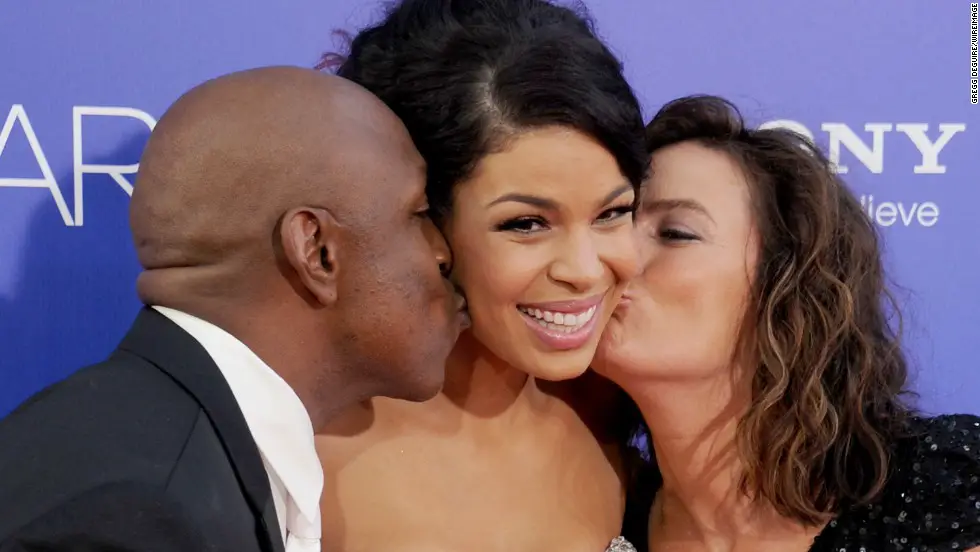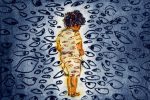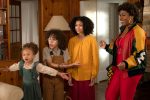Life on the Checkerboard
‘Since people can’t seem to stand being left in suspense, I have spent the majority of my life answering that same dumbass question, ‘What are you?”
By Finlea Baxter, University of Oklahoma
I hate standardized tests.
I hate them. You know why I hate them? I hate them because of that stupid questionnaire at the beginning where I have to fill in the bubbles telling these people exactly what hole to put me in for legal and statistical purposes.
From TAKS to the SAT to the ACT, I just couldn’t catch a break. There that bubble would be, laughing softly and daring me to strike it out while the other bubble looked on mournfully from above, waiting to experience its own metamorphosis at my hands. I couldn’t have both, even though both were true.
And so, as it was often already filled in for me when I received my state tests, I would reluctantly begin to bubble in the “other” circle. It’s not like they offer an option for “every race above.”
I am a diminutive, half black, half white pokeball of sarcasm and insanity, meaning that my skin is delightful shade of warm, milky brown. My features are round, but not quite round enough to visibly belong to any one race, making my superhero origins somewhat of a mystery. And since people can’t seem to stand being left in suspense, I have spent the majority of my life answering that same dumbass question, “What are you?”
See, I never knew how to answer them, so the question always scared me. I had asked my father once what I was, but he’d only cryptically replied, “You’re you.” I never knew what he meant until much later.
I remember very clearly the day I found out I was black. I had gone to a sleepover for the ninth birthday party of a friend of mine and, as with all little girl parties, the time had come to play dress-up. The theme this year was Disney Princesses, and as I dove for the yellow Belle dress, another girl snatched it away. When I asked her why, she told me that I couldn’t be Belle because I was black.
I knew what black people were, of course, but I’d never thought about it in relation to myself. I went home and asked my dad if I was black, to which he replied, “You’re you.” Real helpful, dad. Thanks.
I had state tests the next week in school, and when I looked at the test form, sure enough, there was the “Black” bubble filled in for me. But then I got my test form for another subject, only this time with the “White” bubble filled in. Now, I was thoroughly confused. I didn’t say anything about it, though, because I didn’t want anyone to know that I had no idea what I was.
Over the course of the test week, I began to notice that the State of Texas had about as much idea what race to call me as I did. It was confusing and frustrating, but I couldn’t do anything about it, so I eventually decided that, despite the fact that I couldn’t be Belle, I wanted to be black.
After all, I was considered a negro by the laws that had governed my hometown before 1963, and I had about as much chance of passing for white as a refrigerator does of winning the Kentucky Derby. There was just one problem: I sound about as black as Sarah Palin.
Little known secret of the black community: racism has existed within it for centuries, mainly focused on the struggle between light-skinned blacks and dark-skinned blacks. It goes all the way back to the slave-days when the light-skinned slaves were normally allowed to be house servants and pass their days in the shade, while their darker counterparts spent their days toiling under the hot sun in the fields.
Even after the Emancipation Proclamation and the eventual creation of Historically Black Colleges (HBC’s), the infighting continued, with each group finding ways to subtly (or in some cases not so subtly) discriminate against the other.
Naturally, this fostered a lot of animosity between the two, the echoes of which can still be felt today, particularly when people like myself—people who are visibly a product of an interracial union—attempt to find a place for themselves within the community. Not only have I been told by other African Americans that I’m not allowed to be black, my father has, too.
My father, guys. The 5’11 ball of rage and biting sarcasm with skin the color of roasted almonds and fresh-ground coffee. The man with a voice so deep and loud that it’s like falling into a pool. I honestly think I can say, all joking aside, it doesn’t get much blacker.
And yet, because we speak English without much in the way of an accent, because he dared marry a white woman, because I quoted Shakespeare and Donne as an eight-year old, we were denied a place in the community for being “not black enough.”
I hated being in limbo, with the white people I knew insisting I was black, and the black people I knew insisting I was white. I honestly didn’t feel happy in the face of either prospect.
What was so shameful about being both? Why would I want to give up the rich cultural history of my father’s people? Why would I want to abandon the joy and laughter of my mother’s people? Why did being educated and articulate mean that I had to be a different breed altogether?
The music and the laughter and the sense of community and belonging to something much greater than myself were what I’d come to associate with being with my father’s family, and the hilarity of my mom’s family was something I never wanted to leave. Why couldn’t I have both?
As it turns out, the trick to finding yourself is to ignore the ignorance around you.
Remember how my dad had answered me with, “You’re you?” Well, there was a lot of sense in what he said. No person is exactly one thing and no race of people is exactly one way. Unless you’ve made up your mind to do so, no one can ever define you by what you look like, no matter how hard they may try.
So here I stand, a twenty-something college girl with a blooming sense of self, about to go and take on the world as best I can with the tools I’ve been given.
Texas says I’m a minority voter.
My old school pals say I’m a middle-class wannabe white girl.
Me? I say I’m me.












